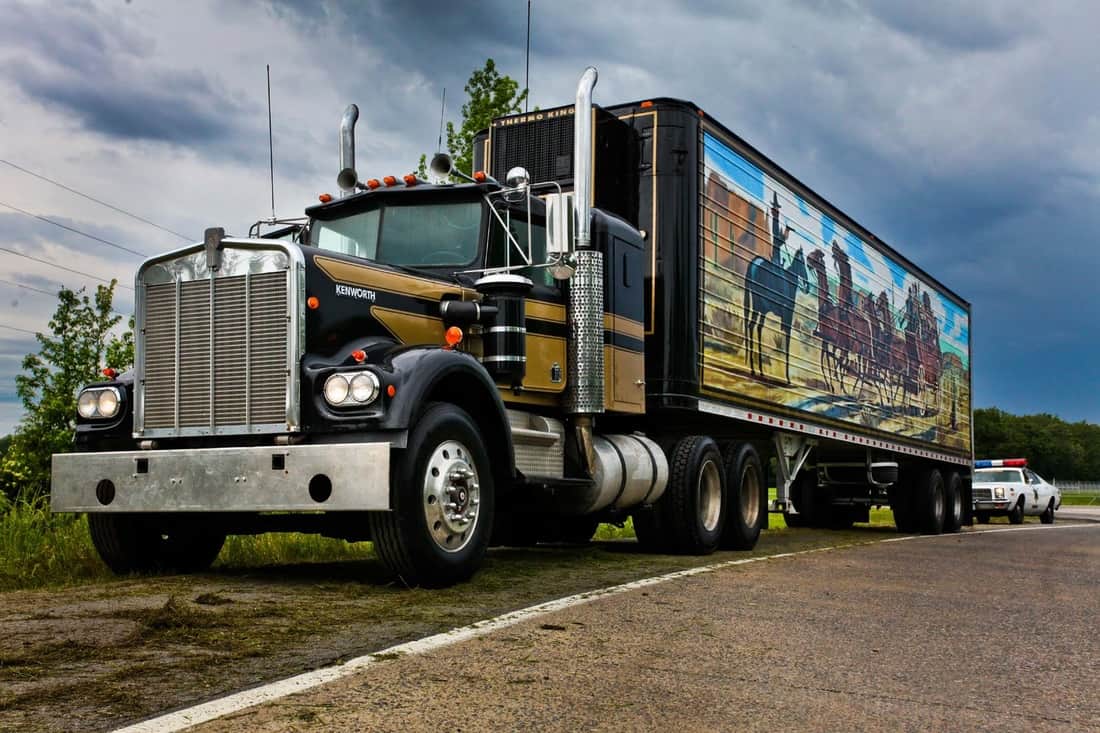The Backbone of Shipping: Exploring the World of Semi-Trailers
From the mundane to the magnificent, semi-trailers have been an integral part of shipping for centuries. Despite their ubiquity, many people don’t understand the complexities behind these vehicles and what goes into making them so essential for modern-day transportation.
This article will explore this fascinating world by looking at everything from materials used in production and construction to design features that make semi-trailers reliable, efficient, and safe. Well also discuss how new technologies are revolutionizing the industry and transforming it into something even more remarkable than before. Join us as we delve deeper into one of the civilizations’ most important inventions – The Backbone of Shipping: Exploring the World of Semi-Trailers.
Semi-Trailers: A Closer Look
Semi-trailers are an integral part of the shipping industry, transporting goods from one place to another. They come in many shapes and sizes, ranging from smaller models that can transport lightweight items to larger units capable of carrying heavier loads. No matter the size of the semi-trailer used, they all have a few common features. Semi-trailers are equipped with four axles connected by a fifth wheel attachment point and drawbar. This allows them to distribute weight evenly across their length while keeping the trailer stable when being towed.
The trailers also come with several safety features such as brakes, lights, mirrors, and reflectors for better visibility on the road. Inside each semi-trailer is an array of different compartments designed to store different types of cargo safely during transit or provide additional space for freight storage needs such as refrigeration or temperature control systems. Additionally, these trailers are often outfitted with sophisticated tracking devices so shippers can monitor their movement at any time during transit ensuring smooth delivery times for customers’ orders and deliveries alike.
The Importance of Semi-Trailers in the Shipping Industry

Semi-trailers are an integral part of the shipping industry. They provide the backbone of transportation for goods around the world, allowing businesses to quickly and efficiently get their products to market. Without semi-trailers, global trade would be greatly hindered and business operations would suffer. The importance of semi-trailers in the shipping industry cannot be understated. Semi-trailers have revolutionized how goods move around the world as they offer a convenient way for companies to transport large volumes of items over long distances with ease.
Thanks to modern advances in technology, semi-trailers can now accommodate more cargo than ever before while also being able to traverse difficult terrain or weather conditions with little difficulty. In addition, having access to reliable and robust semi-trailer fleets allows shippers to reduce costs associated with their operations by lowering fuel consumption and improving efficiency when it comes time for loading and unloading shipments at various locations across vast distances.
These cost savings not only benefit businesses but also consumers as well since these savings tend to be passed onto customers through lower prices on products they purchase online or in stores throughout different countries worldwide. Apart from providing logistical benefits, semi-trailers contribute immensely towards safety on roads too by ensuring that heavy loads are transported safely without any risk of damage or injury due to accidents caused by careless drivers who may fail to adhere to traffic laws set out by authorities across different countries globally. The secure containers used within these trailers further ensure that valuable merchandise is safeguarded against theft during its transit from one destination to another thus making them indispensable components within any successful shipping operation today.
Uncovering the Benefits of Using Semi-Trailers for Transportation
Semi-trailers are an essential part of the transportation industry, allowing for the efficient movement of goods across long distances. For businesses that depend on timely delivery and reliable transport, semi-trailers provide a cost-effective solution to large-scale shipping needs. Companies can use semi-trailers to move their products from one location to another with ease and convenience. The benefits associated with using semi-trailers in transportation are numerous, ranging from increased safety measures to improved fuel efficiency.
For companies looking to reduce costs while increasing the speed and reliability of shipments, semi-trailers offer significant advantages compared to traditional shipping methods. Semi-trucks can carry more cargo than most passenger vehicles due to their larger size and weight capacity; this allows companies greater flexibility when selecting routes or transporting large orders without having multiple vehicles on the road at once.
Additionally, loading and unloading cargo is simpler with a trailer as they come equipped with ramps that can be used by forklifts or other machinery for easy access into the truck bed itself. Alongside these practical considerations, using a trailer also provides better protection against theft or damage during transit as well as enhanced security features such as GPS tracking systems which allow shippers peace of mind knowing where their goods currently reside at any given time throughout the journey. Lastly, fuel efficiency is significantly higher for trailers over cars due in part to their aerodynamic design which reduces drag on highways providing both economic savings and environmental benefits too!
Examining the Components That Make Up a Semi-Trailer

Semi-trailers are the backbone of shipping, and understanding their components can help to better understand how they work. Semi-trailer trucks consist of three main parts: a tractor, a trailer, and a fifth wheel. The tractor is the engine that pulls the trailer, while the trailer is composed of an enclosed box with attached wheels that support its load.
Finally, connecting these two sections is the fifth wheel coupling device which allows them to swivel to make turns easier while driving. In addition to these core components, semi-trailers also have several other features such as air brakes for increased safety and aerodynamic designs that improve fuel economy. Furthermore, certain types may be equipped with GPS navigation or RFID capabilities for tracking purposes during long hauls on major highways across North America. All in all, semi-trailers are one of the most sophisticated forms of transportation available today – and understanding their components reveals why this is true!
